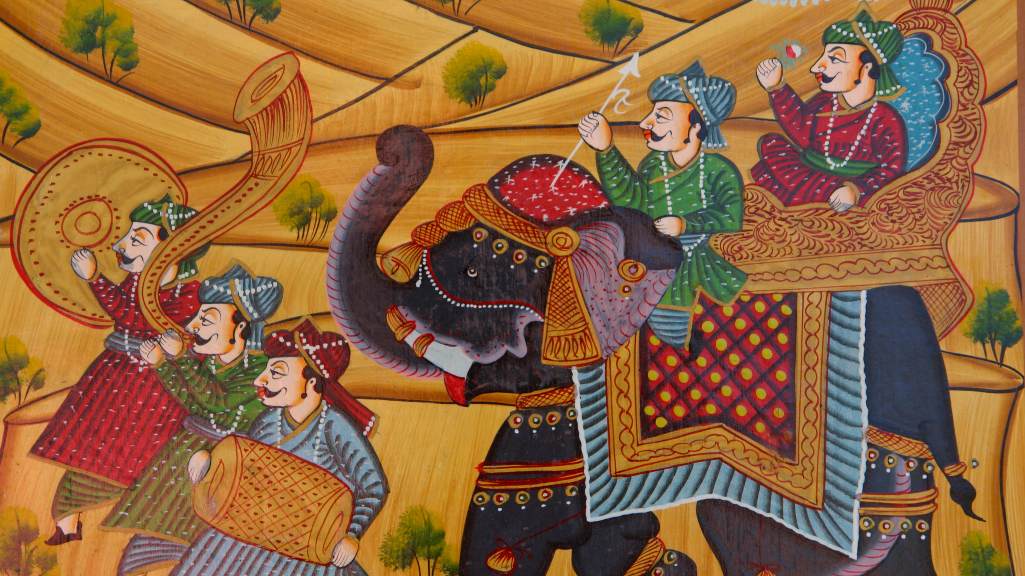A Glance into the Rich Tapestry of Indian History
Alvish Asher
. 2 min read
Indian history is an awe-inspiring narrative that spans thousands of years, marked by remarkable achievements, cultural diversity, societal transformations, and even unexpected encounters like an intriguing omegle chat. From the ancient Indus Valley Civilization to the present day, India's history has shaped the nation's identity and influenced the world. This article provides a brief overview of key periods and events in Indian history, showcasing the captivating journey of a nation that is as dynamic as an enlightening conversation on Omegle.

Unveiling the Tapestry of India: From Ancient Civilizations to Independence
- Ancient India: One of the oldest civilizations in the world, ancient India witnessed the rise and fall of mighty kingdoms, the development of sophisticated urban planning, and the birth of profound philosophical ideas. Notable ancient civilizations include the Indus Valley Civilization (2600-1900 BCE), known for its advanced urban planning and trade networks, and the Vedic period (1500-500 BCE), characterized by the composition of the Rigveda and the emergence of early Hinduism.
- Maurya and Gupta Empires: The Maurya Empire (322-185 BCE) under the reign of Emperor Ashoka expanded across much of the Indian subcontinent and promoted Buddhism. Ashoka's edicts, inscribed on pillars and rocks, spread messages of peace and ethical conduct. The Gupta Empire (320-550 CE) is often regarded as India's "Golden Age." It witnessed remarkable achievements in science, mathematics, literature, and art, exemplified by the works of scholars like Aryabhata, Kalidasa, and the construction of the famous Iron Pillar in Delhi.
- Medieval India: Medieval India was a period of diverse cultural interactions, religious developments, and political upheavals. The Delhi Sultanate (1206-1526) marked the beginning of Muslim rule in India, with prominent dynasties such as the Mamluks, Khiljis, Tughlaqs, and Lodis. The Mughal Empire (1526-1857), established by Babur and flourished under emperors like Akbar, Shah Jahan, and Aurangzeb, left an indelible mark on Indian art, architecture, and governance.
- Colonial Era and Independence: The arrival of European powers in India, primarily the British East India Company, led to a gradual British colonial rule from the 18th century onwards. The Indian Rebellion of 1857, often called the First War of Independence, marked a turning point in India's struggle for freedom. The tireless efforts of leaders like Mahatma Gandhi, Jawaharlal Nehru, and others culminated in India gaining independence on August 15, 1947, becoming a sovereign nation.
- Modern India: Post-independence, India underwent significant social, economic, and political changes. The country adopted a democratic system of governance, implemented land reforms, embarked on industrialization, and launched initiatives for social upliftment. India has faced challenges such as the partition of the country into India and Pakistan, wars with neighboring countries, and striving to address issues of poverty, illiteracy, and inequality.
Conclusion
The history of India is a magnificent tapestry woven with tales of grand empires, intellectual achievements, and struggles for independence. It is a story of resilience, diversity, and cultural richness that continues to shape the nation's present and future. Exploring Indian history unveils the enduring legacy of its ancient civilizations, the influence of invaders and colonizers, and the indomitable spirit of its people, making it a captivating journey for enthusiasts of history and culture alike.
More Stories from
The Indian Army: A Resilient Force Safeguarding the Nation
The Army remains steadfast in its commitment to safeguarding the nation's security and responding to diverse challenges.
The Masters of Chinese Cinema: A Look at the Best Filmmakers and Directors of China
This article highlights the best filmmakers and directors of China.
The Enchanting Rhododendron: Himachal Pradesh's State Flower
Discover the captivating Rhododendron, the state flower of Himachal Pradesh, India. This vibrant evergreen shrub, native to the Himalayas, paints the landscape with breathtaking colors each spring.
Exploring the Uncharted: Speculative Insights into the World Beyond 2021
This article provides a brief overview of potential geopolitical shifts, technological advancements, environmental concerns, health challenges, economic developments.
Racial Justice and Inclusivity: Promoting Equality in Society
Explore the vital journey towards racial justice and inclusivity as we uncover the challenges faced by marginalized communities and the transformative power of inclusivity.











.png?width=40&aspect_ratio=1:1)

.png?width=40&aspect_ratio=1:1)